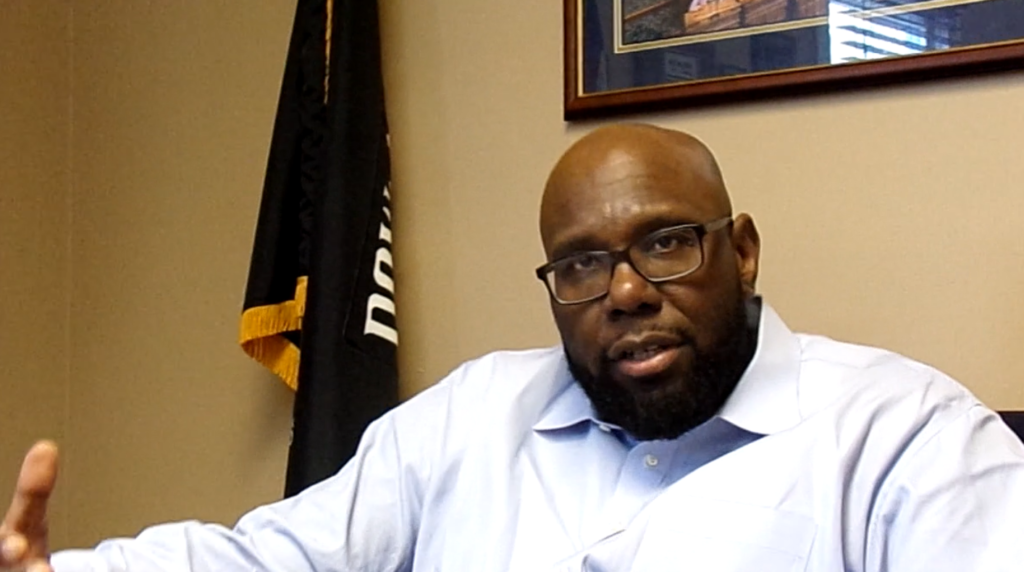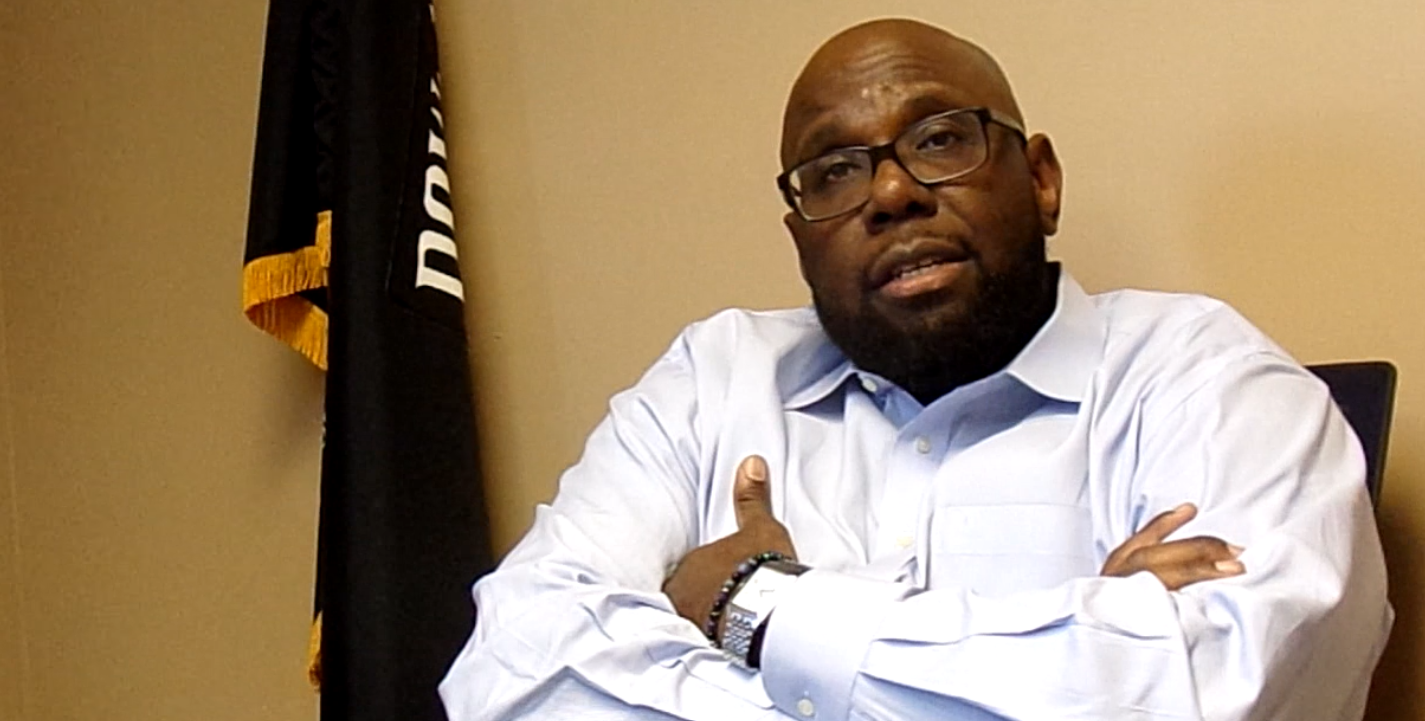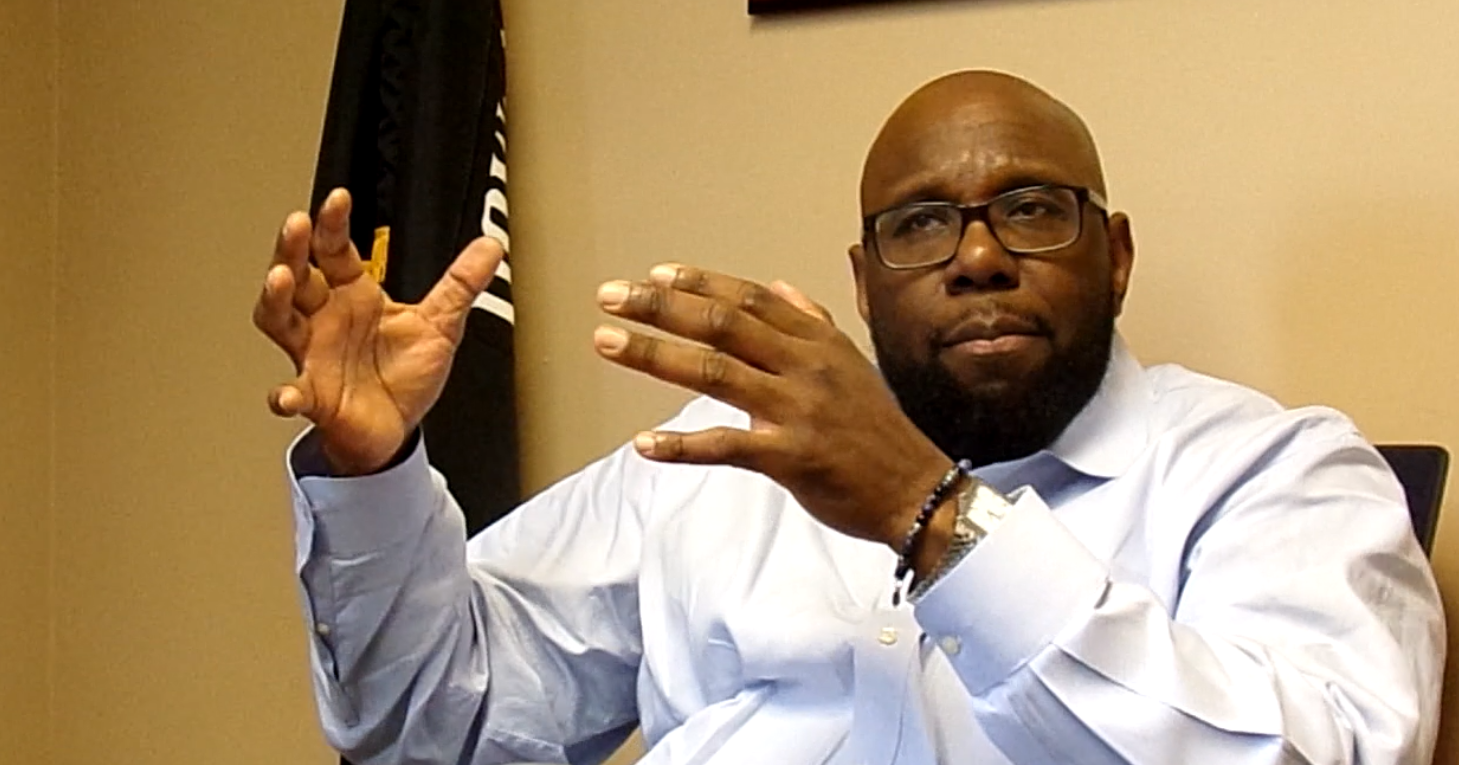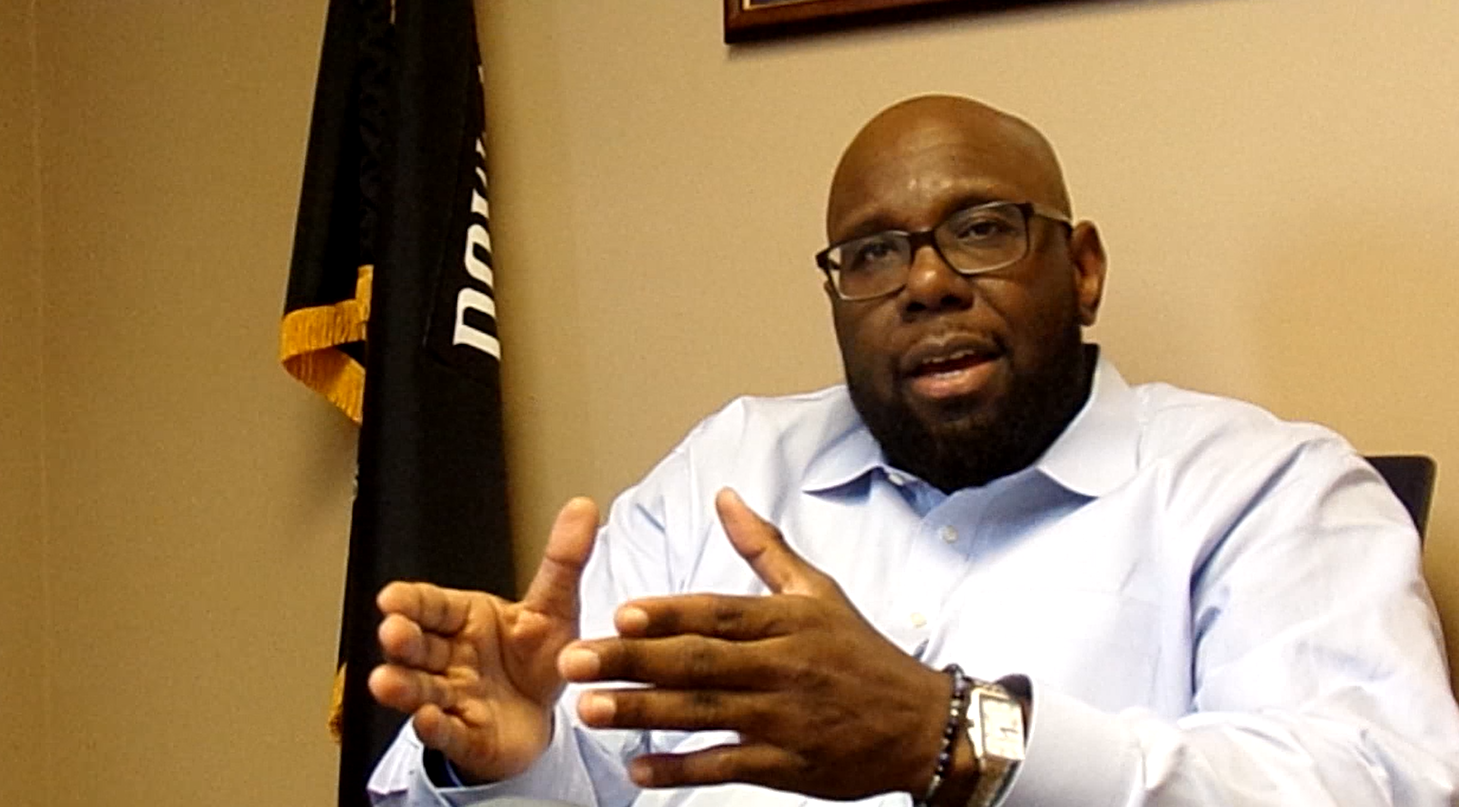The InsiderNJ Crisis Interview with Senator Singleton: on the COVID-19 Virus, Lead Legislation, the Budget, Sweeney-NJEA and More

MOORESTOWN – New Jersey needs access – immediate access to tests for the COVID-19 virus, state Senator Tory Singleton (D-7) said today when InsiderNJ on Wednesday connected with the lawmaker at his district office, where he considered a broad range of subjects in an hour-long interview, including, most significantly at the moment, the coronavirus crisis, which in New Jersey, feels like a crisis compounded on crisis.
We scheduled the interview prior to the mass intensification of the virus and today considered the issue with particular urgency in light of the latest developments, including the reporting of two presumptive cases in Burlington and the death yesterday of a Bergen man.
Chair of Community and Urban Affairs, Senator Singleton also addressed other pressing issues in the interview, including the state’s drinking water crisis, the state’s ongoing affordability problem, the state budget, the politics of the presidential election, redistricting, civics and civic education, and the deal Senate President Steve Sweeney’s (D-3) struck this week with the New Jersey Education Association (NJEA).
First and most immediately, the senator’s thoughts on the virus:
“We don’t know what we don’t know,” Singleton said.
The pragmatic Democrat with a reputation of thoughtful bipartisan problem solving acknowledged the hazards of having this particular administration in charge at the federal level. “A lot of things scared some of us about turning the federal government over to Trump,” he said.
The underlying question then was: “What happens if something seismic happens?”
Here we are.
Singleton said he has seen the administration fail to deliver test kits in a timely way. He does not have a full knowledge base to give specific additional information to the general public, but noted that the Murphy Administration is working with the information it receives from the feds. Lieutenant Governor Sheila Oliver is personally engaged on a daily basis, leading not just press briefings but informational interactions with lawmakers and elected officials, and Singleton acknowledged the value of having in position an acting governor who possesses considerable understanding about the functioning of government. But that said, “We are all hamstrung,” said the senator. “Information flows down to each state; and different governors have to take [significant] measures, like [New York Governor Andrew] Cuomo enacting a quarantine. We are not getting enough information from the federal government. The fact that we don’t have expansive testing, and we are so far behind, means we have no idea how pervasive this is. We have to do better.”

The president appointed Vice President Mike Pence to head up coronavirus response for his administration. If Pence were in the room at this moment, Singleton said he would tell him, “Get us tests; get us as many test kits as you can. …Give us resources.” If we have to close schools, Singleton said he wants resources to deliver to children who must stay at home who depend daily on school lunch programs. If there is going to be labor disruption, we need an economic stimulus.
“We have to address this on a testing – first – education and economic front,” Singleton said. “If we do that, we will survive this as we have survived every crisis in our country.
“Our social safety nets will be stretched, as will our hospitals, which are inundated,” he added. “We need to make sure our healthcare infrastructure is robust enough hospital, especially in rural areas. Those conversations need to be going on right now with hospital CEOs.”
In the meantime, “Wash your hands,” Singleton said. “You don’t need to shake everyone’s hands.”
He remembers being a 13-year old and thinking he was too cool to shake anyone’s hand, relying on a minimalist nod of the head as a greeting.
“Now it’s a way of life,” the senator said.
He does not at present see the need for a special legislative section, but “I would think if the need arises it will happen. Right now, not at that point.”
The senator addressed the lead contamination crisis, which developed out of reports of record high lead levels in Newark’s drinking water supply.
“The biggest challenge with lead and infrastructure in general is we don’t see the pipes,” Singleton said. “If we were to open the roads we wouldn’t be having the debate about the price tag. Let’s look at the problem and find out how big and deep it is. Right now we don’t even know how pervasive the problem is. …We need to develop a true price tag to get lead out of the service lines, as too much lead has a detrimental effect on [children’s] ability to mature and grow.
“I don’t think we ever lose sight that class [and income disparity] effects every decision, and… all of us are only as healthy as the least of us,” the senator added. “The detriment we allow to happen will come back to us and will cost us more.”
Singleton said he is engaged with the front office at present and anticipates something on the governor’s desk relating to lead mitigation prior to summer break.

“The most urgent component is in identifying all the areas where we have problems,” the senator said. “The biggest challenge is the price tag – anywhere between two to four billion dollars, in a state already challenged by affordability issues. We must make the case that if we invest in this, we will save money over time. It may actually save lives as well.”
Occupant of a battleground county where two Republican candidates are competitively vying to take on U.S. Rep. Andy Kim (D-3) in the general, Singleton considered his own party and the core debate therein against the backdrop of the presidential contest. Advocate of a public healthcare option, former Vice President Joe Biden has the delegate lead in his rivalry with Vermont Senator Bernie Sanders, who favors Medicare for all. Where does Singleton come down on that debate?
“We must find a way for every American to have healthcare, and the difference between Biden and Sanders on this issue is not as expansive as many pundits would have us believe,” said the senator, who spoke to the need for Democrats to regain power in both houses and the presidency this year in order to reverse course on the GOP’s attempts to dismantle public healthcare.
“If we don’t have a Democratic senate or house, those initiatives would have a tough time coming to fruition,” Singleton said. “We have to have a congressional body that will allow us to achieve healthcare for all.”
He conceded that Kim – who in 2018 displaced CD3’s Republican incumbent on a wave of anti-Trump backlash – will have a better reelection shot if Biden tops the Democrats’ ticket.
“Ultimately it comes down to the candidate and Andy Kim is a fantastic candidate, regardless of the presidential candidate,” Singleton said. “But it is hard to ignore the demographics of the third and the interplay of Burlington and Ocean. Andy Kim running with former Vice President Biden puts him in a chance to take one talking point away that the opposition will run against him. They will want to spend so much time talking about Senator Sanders’ views as opposed to CD3 issues, but to be clear, I would work my heart out for Sanders and Kim the same way for I would for Joe Biden and Kim.”
InsiderNJ asked the senator if he trusts the party establishment – if fully restored to power – would advance a progressive healthcare legislative agenda on the strength of Sanders’ influence.
“I quibble with the idea of the establishment, such as it is is; look, the South Carolina establishment looks a lot like me. At no time in our political history have black folk been in the establishment. We can’t be so rigid in our use of labels. That said, Sanders’ ideas permeating has made our party better. Sanders has forced healthcare to the forefront of the notion that every one should have a shot at the American Dream. We may have different ideas on how we achieve that goal, but it is naive to think we would be in conversation to the level we are if he had not been in the race. We cannot lose sight of the interjection of those ideals and principals in public policy.”
Democrats, however, arguably haven’t made a sustained and compelling case in New Jersey for why regular people should want more of them to occupy positions of power at all levels. Senate President Sweeney got along better with former Republican Governor Chris Christie than he does with fellow Democrat Murphy. The governor’s budget rings in at $40.85 billion, or a billion dollars more than the budget from a year ago. A former state senate colleague of Singleton’s, U.S. Rep. Jeff Van Drew (R-2) evacuated the Democratic Party sooner than impeach President Donald J. Trump and associate himself – in a battleground district – with the leftward reaches of his party. The party looks mangled, compromised, or both. Who would dare transpose New Jersey’s warring and/or chameleon-like transaction-minded majorities to Washington, D.C?
Singleton is advancing his own affordability crisis bills, among them the New Jersey American Dream Act, which would provide down payment assistance and home repair assistance to certain low and moderate income, first-time homebuyers in order to defray the costs associated with acquiring and rehabilitating single-family housing for principal residence. “There are portions of our budget governor has no control over,” said the senator, who celebrated Sweeney’s announcement earlier this week of a deal with the New Jersey Education Association (NJEA) that would save $1 billion.
“I’m looking forward to that conversation,” he said.
But the way Sweeney rolled out the announcement, with Murphy still sidelined by post-surgery, gave the appearance of dreaded enemies Begin and Sadat suddenly discovering they can derive more enjoyment from freezing out Carter than letting him hold the reins of a peace accord. It resembles continuing Democratic Party hijinks designed to make Sweeney look like he’s driving the football with Murphy irrelevant on the sidelines; an image buttressed by Speaker Craig Coughlin’s supposed irritation by the Sweeney-Marie (NJEA) Blistan endzone dance, as if he felt calculatedly left outside the coliseum for political purposes.
Singleton begged to differ, describing the deal as a Sweeney “crowning” moment, given his contentious and bloody history with the organization “that he frankly had been at odds with.”
“I don’t know if it says anything about their relationship but I did read some very kind remarks by the governor’s chief of staff,” said the senator. “If they haven’t seen eye to eye up to this point, there is still a lot more we have in common than we don’t. It is for us to focus on what we have in common. The senate president does a wonderful job engaging everyone in our caucus. The focus has always been cohesive.”
To Singleton’s earlier point about labels and the oversimplification of politics, InsiderNJ asked him for his view on the degree to which short hand in politics hinders our collective ability to engage ideas. “Identity politics is dangerous, period,” he said. “We are too often focused on the people in front of us rather than the ideas and content they give us.
We have polarized ourselves into camps.
“Let’s just have a conversation where you can learn from me and I can learn from you,” Singleton said. “If I have to be right and you have to be wrong, there is no space for rational and reasonable conversations. I need to be in rooms where people think like me and don’t think like me. In our politics, we have districts constructed and gerrymandered to the point where people only have to talk to 51 percent. Border construction of districts is a problem – a huge problem. Governor Christie was famous for saying ‘it’s hard to hate up close’ but easy with your phone. If they had to sit in front of you they wouldn’t say that. That’s why for six plus years we have had a monthly citizens advisory council. We don’t check [party] registration.”
In those meetings with conservatives, liberals and moderates, the senator said he extracts ideas for bills and initiatives. “That’s how I stay grounded,” said the co-sponsor of a bill that would require civics education in public schools as a component of history.
“We have lost sight of what civically engaged means,” said Singleton. “To some it has become ‘you’re going to insert your political viewpoint into the teaching of civics.’ But this is not a political viewpoint. We need to teach how to think critically. People are just regurgitating what they have heard some pundit say – on the left and the right – rather than applying critical thinking. They are relying on not being civically engaged enough. The biggest part of our representative government is not folks like me, Governor Murphy or President Trump. It is the people. and we’ve become so cynical, mind you, those in office have helped create that cynicism – because we have transmitted the idea it doesn’t matter. Civic education requires schools being engaged. The idea behind it is straight forward. We want you to understand your place in our representative democracy. If we can inform people, we will get more people participating. Any elected official who does not want more people participating does not deserve to hold public office.”
As Singleton speaks, he almost obsessively routinely refers to constituents as his bosses.
It’s noticable in a state where Hudson County’s Frank Hague, boss of bosses, once said “I am the law.”
Singleton says it almost as a matter of defiance, but also because he seems dedicated to ensuring his functioning part in that delivery system of democracy. “We don’t have constituents, we have 226,000 bosses in the 7th district,” he said.
The Burlington’s senator is also, of course, part of the political circuitry overlorded by Sweeney and South Jersey Democratic Party boss George George Norcross III otherwise known as South Jersey, the potent organization that last year sustained a caucus member loss when Senator Robert Andrzejcazk (D-1), a war hero, lost his seat to Mike Testa.
“Bob’s loss is something all of us feel,” Singleton said. “We miss this quiet leader and all he sacrificed for our country.” Does his absence put more pressure on South Jersey to protect state Senator Dawn Addiego (D-8) come 2021 to preserve six Democratic senators in the caucus?
“Our objective is not only that every member of our caucus comes back to Trenton, but that we find ways to grow the caucus,” he said. “I think too that everyone needs to take a deep breath because we’re not fully aware of what the challenges are ahead of [2021] redistricting. We are all cautiously optimistic, and I’ll be there for any of my colleagues.”
Tom Paine wrote The American Crisis in New Jersey, and maybe it’s fitting today to note that Paine lived for a time in Burlington. The discussion turned to history, as the senator reflected on leadership and those qualities American prize in times of crisis. He mentioned John F, Kennedy and his actions during the Cuban Missile Crisis; Baraka Obama in the face of the country’s economic collapse; FDR and measures to reverse the Great Depression that today would no doubt be derided as socialism; Fannie Lou Hamer; Frederick Douglass ; and Shirley Chisholm. Even in that context, of broad nationwide issues and history extending beyond his home state, Singleton hearkens back to his mentor when he considers the finest example of leadership in government.
He worked for Speaker Joe Roberts in the Assembly Majority Office early in his career, and to this day he honors him. “It would be remiss of me not to mention him,” Singleton said of Roberts. “To me he was truly a father figure. I watched how he governed himself, spending time being most prepared in order to articulate his views to give others confidence and give people a sense of calm.
“I want to be that person whose preparation is never questioned,” he added. “I want to think through the scenarios and demonstrate that my ideas and arguments are well reasoned and well thoiught out. If as a legislator I can articulate my views to my colleagues, others can follow.”
Referring to his brother’s decision-making capacity at the brink of nuclear war in his celebrated treatment of the Cuban Missile Crisis, Thirteen Days, Robert Kennedy wrote, “No one could predict what was in store in the days ahead, but we all felt that the President, because of his own wisdom and personal dignity, would have the support of a unified country.”
In the context of that line today and within the radius too of his own fellow, facts-demanding South Jersey forbearer, Singleton said, “If you don’t listen to the experts and keep encouraging the notion of fake news, people will die from this pandemic.”










Leave a Reply